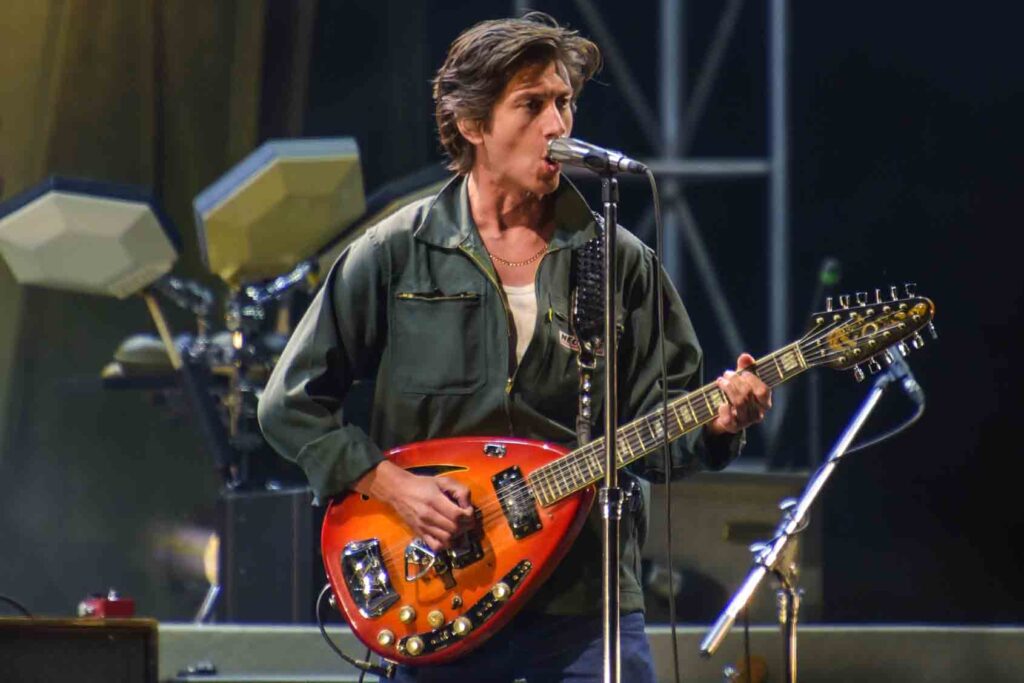Arctic Monkey's 7th studio album, “The Car”, came out a few weeks ago, on 21st October.
All the reviews are out by now, but we wanted to take our time to give it a few listens and really let it sink into our musical brains before telling you what we think about it. So, I’ll get right to it: it’s a masterpiece.
One Of The Strokes
Now, let me expand on it and tell you why I think that.
Arctic Monkeys is a band that started out wanting to be “one of The Strokes”, as Alex Turner confesses on “Star Treatment” from their 2018 album “Tranquility Base Hotel & Casino”.
By their third album they morphed into a band that more closely resembled Dessert Sessions (Josh Homme’s band) and that phase culminated with their 2013 album “AM”. It all changed in 2016 when Turner released “Everything you’ve come to expect” with his other band Last Shadow Puppets.
That record, and their follow up “The Dream Synopsis” laid out Turner’s new direction into artists like Serge Gainsbourg and Scott Walker. It’s a style that is characterised by long lyrics that don’t repeat, a “crooner” vocal style, orchestral arrangements and a 1960’s feel. Many Arctic Monkeys fans missed that evolutionary step but got to hear its effects on 2018’s “Tranquility Base Hotel & Casino”. This album was a shock to many of their “traditional” fans and, while it marked a very severe change from their punk and “dessert rock” roots, it also laid the foundations for what is now their latest record “The Car”.
Not Afraid To Change
Arctic Monkeys are not afraid of losing their entire fan base. Alex Turner needed the change. He has talked about having to move away from the guitar when composing as he already knew where things would go if he continued down that path. He wanted to be surprised and excited again, so he moved to the piano. He also started to spend more time on the songs by himself, working on them and refining them before bringing almost finished products to the rest of the band.
The Car
The first track of “The Car”, “There’d Better Be a Mirrorball” opens with a bass, a piano and strings which start together but occasionally leave some notes behind, creating temporary dissonances. Then we have 6 stabs, reminiscent of those in Stravinsky’s 1913 “The Rite of Spring”. None of this is “normal” by today’s rock standards. Then we have its tempo of 73 beats per minute: way slower than your average pop song.
Jump forward to track 5, “Body Paint”, also a slow one at 70 bpm, jumping octaves on its vocals right from the start and sprinkling falsettos seemingly at random. A piano is again at the centre of the song, with strings complementing the arrangement. With this background, the synth melody sounds eerily beautiful.
Next, coming in as track 6, we have the title song “The Car”: this song wouldn’t be out of place in a 1970’s album, and its arrangement could make for a great soundtrack for a drive through the American desert. Here the arrangement includes orchestral timpanis and cinematic strings telling their own story almost unaware of what Alex Turner’s rambling on about. Finally, to end our tour of this album (and only because we’re running out of space), let’s jump a couple of tracks to “Mr Schwartz”: this is an almost drum-less song, driven by an acoustic guitar, a sparse piano and a wood block. Rhythmically, you could call it a Bossa Nova. Yes, you read that right: a Bossa Nova.
And is that, plus the unconventional arrangements, the beautifully crafted songs, the couldn’t-care-less-what-people-think slow tempos, the long unrelenting lyrics, and the fact that this record doesn’t just have one or two such songs, but 10 of them, what makes this a masterpiece. It’s either that or Alex Turner is a musical genius.
Take your pick. I’m off to listen to “The Car” again and the world is all the better for it.





